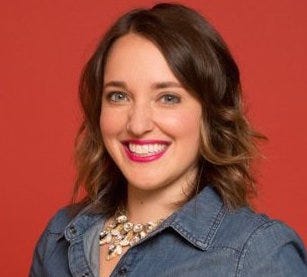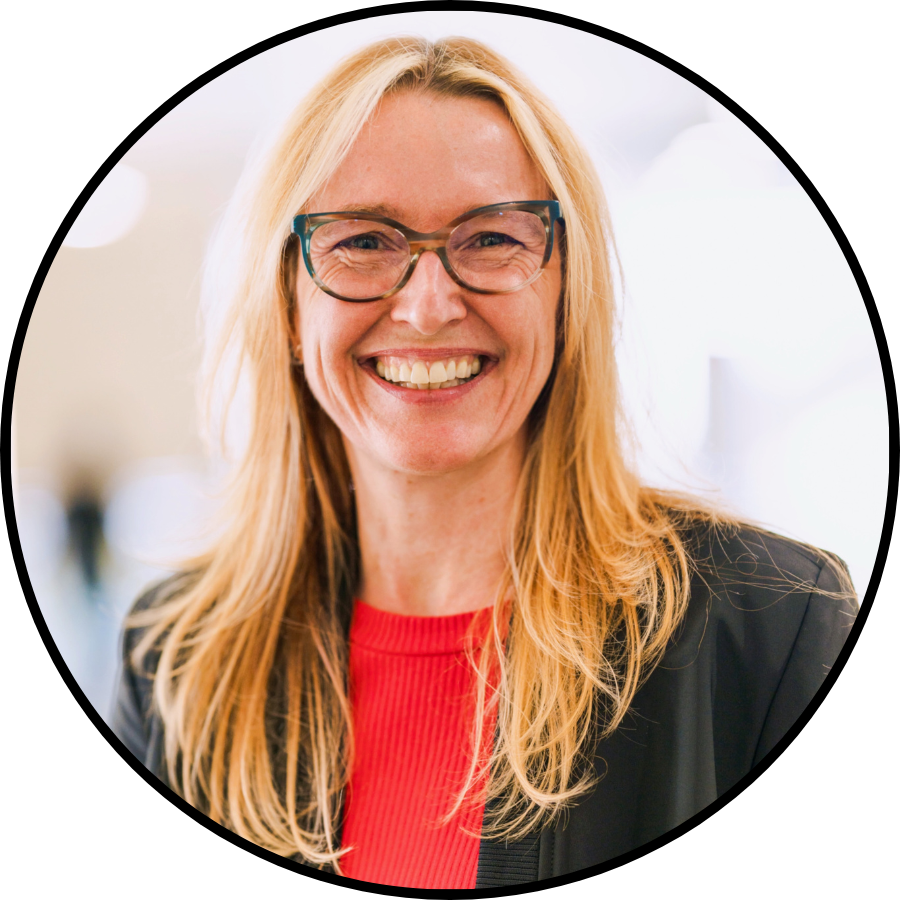
By Jared Karol
In today’s Diversity & Inclusion Spotlight, we hear from Aubrey Blanche, Global Head of Diversity & Inclusion at Atlassian. Aubrey’s role focuses on working with teams across the business to enhance access to technical education, recruiting, retention, and career mobility for underrepresented minorities.
Change Catalyst: What are you currently working on to improve diversity and inclusion in tech?
Aubrey: Atlassian is a global software company that makes a suite of collaboration products for teams, like HipChat, Trello, and JIRA. My job is to work with leaders across our business to understand why our teams aren’t as diverse as we’d like, and then help design interventions to ensure that people of all backgrounds have an equal chance to join Atlassian, and to succeed once they’re here. I’m working with people to make the world a fairer, more equitable, and more innovative place.

Change Catalyst: What motivates you to work towards an inclusive tech ecosystem?
Aubrey: A couple of things: First, I’m motivated by a profound sense that the world should be a fair and just place, and I’m flabbergasted when people just accept that it isn’t. The “world’s not fair” line has always struck me as a lazy thing to say when someone is advocating for equality. OK, so the world isn’t fair, but does that mean we have to accept that? Silicon Valley is predicated on solving “impossible” problems. For example, we call Elon Musk a genius for trying to make electric cars ultra affordable. Why is the idea of making the tech industry live up to its own meritocratic hype crazy in comparison? Second, I’m a queer Latina woman. That’s probably pretty self explanatory.
Change Catalyst: What will be the biggest story around diversity and inclusion in 2017?
Aubrey: Wouldn’t it be cool if venture capital took a leading role in solving this problem? That would be a huge story, since it’s where the real power lies in much of the tech industry. There are some folks doing amazing work in this space — Kapor Capital, Project Include, Arlan Hamilton, and many others — but I haven’t seen the kind of movement that we’ve seen with elite high-growth startups. . .yet. 2017 could be the year, and I’ll be stoked if we start to see signs of serious investment in diversity and equal access to opportunity among VC firms. There’s so much untapped potential there.
Change Catalyst: What one key solution would make a huge difference in creating a more inclusive tech ecosystem?
Aubrey: I really hope that the conversation around diversity metrics and what progress looks like gets a bit more nuanced. The way we’re reporting on and talking about this issue is overly simplistic. We’re comparing corporate aggregates, which makes no sense because those numbers don’t measure diversity, they measure representation. They also don’t take into account the different sizes and very different organizational structures at various companies. How, then, can we move the needle if we’re all talking about a completely different baseline, and sometimes completely different needles?
When we released our first external diversity report last year, we measured diversity at the team level. Focusing on the team as the unit of analysis felt obvious, because diversity is inherently a group-level construct, and we need something that tells us about the real interactions people are having day to day. This allows us to focus on teams doing similar types of work, which makes intra-company comparison more reasonable. And, because the average size of each team within organizations are similar, it helps us compare companies of different sizes that may be at very different stages in their growth. We should be holding everyone in this conversation — diversity & inclusion professionals, tech workers, diversity advocates, beat reporters, etc. — to higher standards when talking about progress and how we’re measuring it.
Change Catalyst: What is the best example of leadership in inclusion you’ve seen recently?
The first thing that comes to mind is how Atlassian’s co-CEO, Mike Cannon-Brookes, has responded to recent political events in the U.S. which have been very scary for a lot of people. After the election, I certainly wasn’t the only Atlassian terrified about the future. His initial response was to blog to our 2,000 employees worldwide, telling us how he was feeling and reaffirming our commitment to inclusion, respect for the value of diversity, and core belief in doing the right thing. He openly acknowledged how scared and hurt those of us targeted by the hateful rhetoric of the past few months must be feeling. I’ve seen him consistently use his position to advocate for others, even when it is risky for him to do so.
Change Catalyst: Describe the impact you’re having in your role.
Aubrey: The biggest impact I’ve had is on our culture — how we address issues in diversity and inclusion. A colleague told me a few months ago that before I started at Atlassian conversations around diversity were mostly happening one on one around the water cooler. We weren’t really having big conversations as a global team. I’ve focused a lot on education and facilitating conversations around hard topics — like why being concerned about “lowering the bar” is inherently problematic, or why there isn’t fundamentally a “pipeline problem” for most types of roles. We’ve tried to create a space where people can ask hard questions and be taken seriously, because I believe that the most knowledgeable teams are the most inclusive. Now, it’s not crazy to see a blog post about how men can take steps to be awesome allies (that generated hundreds of comments), or how we’re thinking intersectionally when identifying areas of opportunity to diversify our teams. I’m incredibly proud of that, and excited to see how we’ll continue to evolve in this space.
Change Catalyst: Just for fun, what unique or unusual talent or skill do you have?
Aubrey: Well, I’m a classically trained mezzo soprano. I used to do a lot of solo work, but these days it’s mostly singing in the car to Hamilton.
About Change Catalyst:
Change Catalyst empowers diverse, inclusive and sustainable tech innovation — through events, consulting, research and training.
Our Tech Inclusion programs explore and develop innovative solutions to tech diversity and inclusion.
Our Startup Ecosystem programs help underrepresented entrepreneurs and investors to start, scale and fund worldchanging businesses.
Change Catalyst is a Certified B Corp, winning the “Best for the World” award for community impact in 2014 and “Best in the World” overall in 2015.
Join Us in Driving Jobs, Empathy and Tech Inclusion Across the U.S. and Beyond in 2017
The Change Catalyst Team
Follow Us on Twitter | Like Us on Facebook | Subscribe to Our Email Newsletter| Listen to our Podcast







